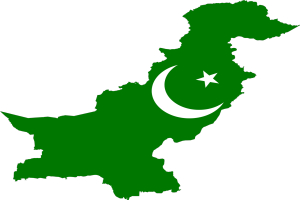
Geneva: Approximately 10% of all of health facilities have been damaged, leaving millions in Pakistan without access to health care, Dr Tedros Adhanom Ghebreyesus, Director-General of the World Health Organization (WHO) informed the United Nations Office for the Coordination of Humanitarian Affairs (OCHA), today.
The WHO D-G said that although the water had stopped rising, “but the danger has not”. He warned that the country was on the verge of a public health disaster. “Many more lives than were lost in the floods could be lost in the coming weeks if we don’t mobilize greater support for Pakistan,” he said.
There are now outbreaks of malaria, cholera and dengue, an increase in skin infections, and the WHO estimates that more than 2000 women are giving birth every day, most of them in unsafe conditions.
At the OCHA briefing on the emergency flood response in Pakistan, Dr Ghebreyesus said stocks of essential medicines and medical supplies were either limited or were washed away in the floods. While damaged roads and bridges were impeding access to services and supplies, disease surveillance and referral mechanisms were severely disrupted. He called for an urgent and robust response, supported by sustainable funding, to control the spread of outbreaks, to support routine immunization, to urgently address severe acute malnutrition, and to provide life-saving essential health services.
The D-G informed that WHO’s Executive Director for Health Emergencies, Dr Mike Ryan, along with his colleagues just returned from Pakistan, where they visited the worst affected areas, and met with partners and the government to assess the needs and how best WHO can respond.
“The loss of over 1,500 people is tragic – however it is also remarkable that many more did not perish,” the D-G said and attributed that to the decisive early warning and immediate response actions undertaken by the Government of Pakistan and local communities. “The government is understandably overwhelmed and needs our support,” he said.
In August 2022, WHO released 10 million US dollars from our Contingency Fund for Emergencies. However, Dr Ghebreyesus said WHO required 115 million US dollars to support its work to scale up and sustain the health sector response.
He urged donors and partners to support the WHO effort for the people of Pakistan, and stressed the need for an integrated approach that puts less emphasis on the work of each agency, and more on the needs of people.
“And even as we respond to the emergency in Pakistan, we must remember that unless we address the existential threat of climate change, we will be responding to emergencies like this and worse more often,” he said.
– global bihari bureau




